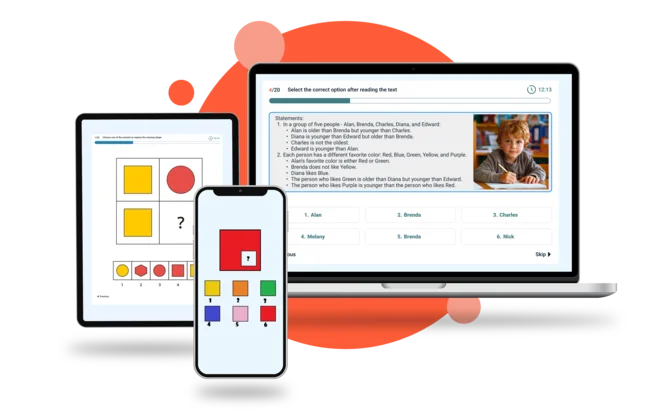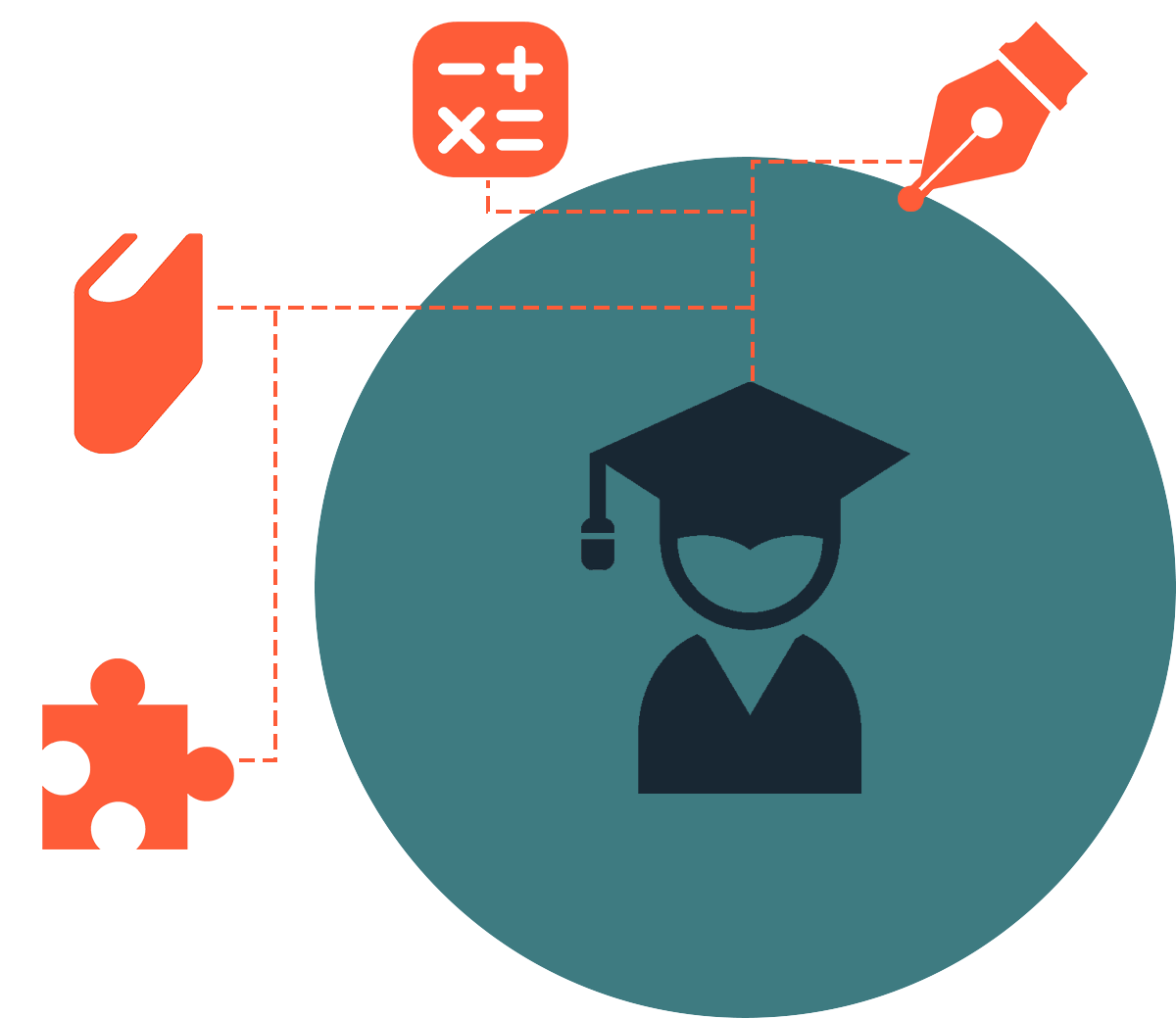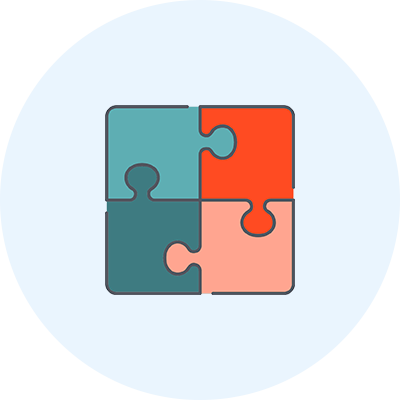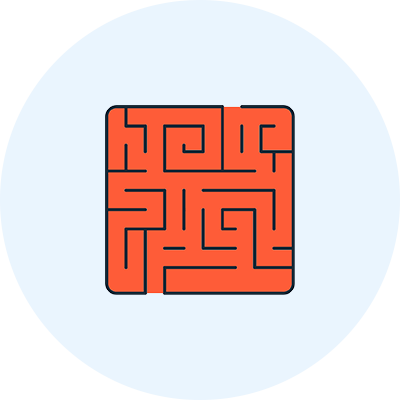We have developed four tests specifically designed to determine the IQ of children. All tests are free of charge and provide accurate, age-appropriate results. Below, you will find a description of these children's IQ tests.


We’ve created a children’s IQ test that is specifically designed for various age groups. The test is divided into four categories: ages 2-5, 6-8, 9-12, and 13-16. Each category contains age-appropriate questions with varying levels of difficulty, ensuring accuracy and relevance for each group. The test provides insights into a child’s strengths and areas for improvement. We also recommend that the test be taken in the presence of the child’s parents for support and guidance.
Measuring a child’s IQ involves specially designed tests that assess their cognitive abilities in a developmentally appropriate way. These tests evaluate key skills such as problem-solving, logical reasoning, memory, and language comprehension. Children’s IQ assessments are typically conducted through engaging questions, puzzles, and pattern recognition tasks suited to their age group. The results provide insights into their intellectual strengths and areas for growth, helping parents and educators support their learning. Our carefully crafted tests offer an accurate and enjoyable way to understand a child’s cognitive potential.


This IQ test is designed for preschoolers aged 2 to 5 years. It includes fun and engaging questions that assess various cognitive skills. IQ tests for preschoolers are designed to assess cognitive abilities in a way that is appropriate for their developmental stage. These tests focus on various aspects of early childhood development, such as language skills, memory, and problem-solving abilities.

This IQ test is tailored for children aged 6 to 8 years. The test includes age-appropriate questions that evaluate cognitive skills like logical reasoning, basic math, reading comprehension, and problem-solving. These tests help identify your child's intellectual strengths and areas for growth, ensuring a balanced development during their early school years.

Designed for children aged 9 to 12 years, this IQ test includes questions that challenge their growing cognitive abilities. It assesses skills such as advanced problem-solving, critical thinking, verbal reasoning, and mathematical logic. These tests provide a comprehensive understanding of your child's intellectual development during their crucial pre-teen years.

This IQ test is meant for adolescents aged 13 to 16 years. The test features more complex questions that evaluate higher-order cognitive skills, including abstract reasoning, advanced math, critical thinking, and verbal analysis. These tests offer insights into your teen's intellectual capabilities, helping to guide their educational and personal development during their formative teenage years.
Test Preparation: The test should only be administered in the presence of an adult. Remember that the purpose of the test is not to irritate the child, but to make the process interesting and educational.
Choosing a Test: We have 4 groups of tests that are appropriate for children between the ages of 4 and 16.
Testing: The time required to complete the test depends on the age and stamina of the child and ranges from 10 to 60 minutes. If the child is tired, take a break and resume the test at a convenient time. (The child's time on the test counts for your review, but is not included in the report).
Results and Recommendations: The test is for familiarization purposes. For an accurate assessment of the level of intelligence and development, it is recommended to consult a child psychologist who will choose an individual approach and make a detailed analysis of the child's abilities (especially the IQ test is not an indicator of the child's intelligence).